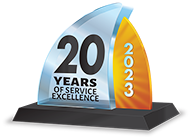DOT Direct Observation Procedures — Rules and Regulations
Drug testing has become a necessary part of our world and is especially important regarding DOT-mandated, safety-sensitive employees. These regulations help protect fellow employees as well as the general public.
If there is reason to believe the employee has altered their submission there will be extra measures taken during collection to ensure the legitimacy of the specimen. If an employee should face this situation, DOT Direct Observation Procedures are outlined below.
When Does the DOT Require Drug Testing?
Because of the safety-sensitive nature of the job, a DOT-mandated employee may face drug and/or alcohol testing during any of the following circumstances:
- Pre-employment drug and/or alcohol testing
- Random drug and/or alcohol testing
- Reasonable suspicion drug and/or alcohol testing
- Post-accident drug and/or alcohol screening
When Do DOT Direct Observation Procedures Affect an Employee?
According to the regulations, DOT direct observation procedures are only authorized and deemed necessary in the following instances:
- The employee tries to tamper with specimen at collection site.
- The temperature of the specimen is beyond the acceptable range.
- The specimen has an unusual color or odor or shows other signs of tampering.
- The collector finds something in employee’s pocket that may have been used to carry a specimen into collection area.
- The Medical Review Officer (MRO) requests direct observation because of one of the following:
- Employee has no medical reason for certain laboratory results.
- Employee’s test had to be cancelled due to refusal, substituted, or adulterated specimen.
- Test is a follow-up or return-to-duty test.
What Employees Should Know and Expect Regarding Direct Observation Procedures
It is important to know what to expect when faced with drug and/or alcohol testing with direct observation protocol. Here’s what employees should know:
- The observer must be the same gender as the employee being tested.
- Failure to follow the direct observation procedures in full will count as a refusal to take a drug test.
FastTrack Enrollment Program from SAP Referral Services Gets Employees Back to Work Quickly!
We understand how important it is to employees that they get back to work as soon as possible. If an employee has failed a drug and/or alcohol test they can turn to SAP Referral Services and enroll in their FastTrack Enrollment Program. Included in the program are:
- Initial evaluation scheduling
- Two face-to face SAP substance abuse evaluations with a DOT qualified SAP
- Education or treatment recommendations (as per the requirement of the DOT)
- Two SAP reports (initial and follow-up)
- Recommendations for submitting return-to-work test
SAP Referral Services maintains a large, nationwide network of qualified providers through out the nation. Typically, an employee will be referred to a SAP in their area within 72 business hours of enrollment. Contact us today at SAP Referral Services and sign up for our FastTrack Enrollment Program.
SAP Referral Services (SRS) is the leading facilitator for mandated substance abuse evaluations. SRS maintains an extensive network of qualified providers in more than 3,000 locations nationwide for testing violations that originate from any of the DOT’s modes including FMCSA, FAA, FRA, FTA, USCG and PHMSA, or a company’s internal drug and alcohol testing policy.


